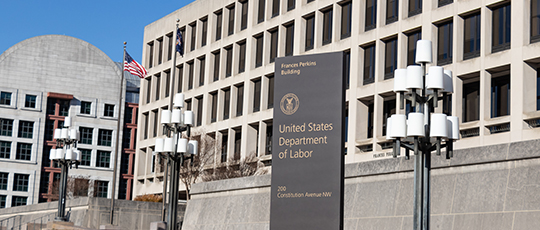- Joining the pay transparency movement. Washington, D.C., has passed one of the broadest pay transparency laws in the nation. It will go into effect June 30, pending Congressional approval.
- New details. Among other specifics, the law requires that employers disclose healthcare benefits as part one of any compensation discussions with job applicants.
- Closing the gap. A major goal of the new D.C. law is to narrow or eliminate a dramatic pay gap that minority applicants and employees experience.
Washington, D.C., is on the brink of joining a growing group of state and local jurisdictions requiring pay transparency in job postings and recruiting practices.
Resource: Pay Equity Laws by State: Are You in Compliance?
Mayor Muriel Bowser signed the Wage Transparency Omnibus Amendment Act of 2023 on Jan. 12, though the law will not go into effect until June 30 (it requires Congressional approval).
Among other regulations, the D.C. law will require all employers (excluding the federal and D.C. governments) to include a salary range in job postings and restrict use of a job applicant’s salary history in setting pay.
Trends and Twists
The D.C. law is on par with other jurisdictions requiring a job posting to disclose the minimum and maximum pay for a position, noted Joy Rosenquist, Of Counsel at Littler. But it offers a bit of a twist by requiring disclosure of healthcare benefits.
Those benefits must be disclosed before the first interview. Rosenquist explained that this is a unique take on benefits disclosures compared to what has been seen from other jurisdictions, which either do not require them at all or require them in the job posting itself.
Rosenquist also noted that with the D.C. law, applicants cannot be screened based on their wage history. Nor can an employer discipline employees for comparing their compensation.
“Compensation in this law means all monetary and nonmonetary benefits,” she said. “In effect, employers may not discipline or otherwise take action against an employee for comparing their PTO and benefits with other employees.”
According to Mariann Madden, North America pay equity co-lead at WTW, the law also includes a salary history ban provision, which is not a new trend, but “it confirms this is another move employers should make to address pay gaps,” she said.
Another aspect of the D.C. law is, like with Colorado and Connecticut, it applies to employers with at least one employee in the jurisdiction, said Tyree Jones, a partner at Reed Smith.
Other states have higher employment thresholds, such as Hawaii (50 employees) and Illinois (15).
Jones said the D.C. law also offers broader measures than the laws of states such as California, Maryland, Rhode Island and Washington state, which require disclosure of salary range only upon request.
Employers with at least one D.C. employee should consider several steps over the next few months, Jones said. They include:
- Examine job advertisements and postings and ensure that all such postings include the relevant salary ranges and the existence of healthcare coverage and other non-monetary benefits.
- Review their applications and accompanying forms to eliminate all inquiries into past compensation.
- Ensure that their reference-check processes do not include asking former employers about a candidate’s past compensation.
- Cease sharing compensation information for former employees with other employers seeking this information.
- Post conspicuous notice of the Act in at least one place where employees gather.
Compliance should be straightforward, said Tom McMullen, senior client partner in the total rewards practice at Korn Ferry.
“Ensure that salary ranges exist and are reported for each job opening,” he said. “Also, provide interview protocols so hiring managers and recruiters provide salary ranges and healthcare benefits, and do not engage the applicant in disclosing wage history.”
Closing the Pay Gap
The D.C. law potentially will bring dramatic changes to pay transparency/wage history practices for covered employers in D.C, which historically has one of the worst pay gaps nationwide.
The D.C. law, which includes amendments to the existing D.C. Wage Transparency Act of 2014, is in part designed to alleviate chronic pay discrimination experienced by minorities.
Brian Levine, a partner at Merit Analytics Group LLC, said the newly required information will ensure that women and people of color are able to bargain from the same position, and also make it more difficult for employers to allow for exceptions (i.e. pay rates near or over the max) which historically have favored white males.
Black women face the largest overall cents-on-the-dollar wage gaps in D.C., earning just 45 cents for every dollar paid to white, non-Hispanic men, according to the National Partnership for Women and Families.
With that as a driver, the D.C. law is focused on ensuring that people applying for the same position — regardless of race or gender — are compensated within the same wage bands, Jones said.
“Hence, a Black woman and a white, non-Hispanic man applying for the same position earn similar pay, thereby helping to reduce that 45-cents-to-$1 wage gap over time,” he said.
Editor’s Note: Additional Content
For more information and resources related to this article see the pages below, which offer quick access to all WorldatWork content on these topics:








